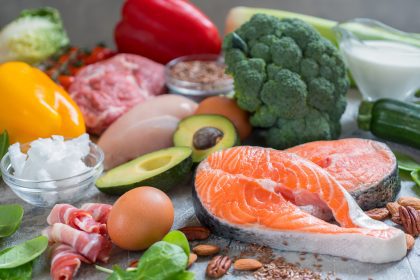
Calling the Food and Drug Administration’s bluff seems to be working in a small snack company’s favor.
Upon receiving a warning letter (very serious shots fired from a federal agency with the power to shut food and pharmaceutical manufacturers down) sternly requesting removal of a “healthy” label from snack bars containing higher levels of saturated fat, KIND clapped back with a humble request of its own: wake up and step into the new millennium. The FDA is still expecting the food industry to comply with guidelines it wrote in the 1990s, which were probably based on “science” from the 1970s that was heavily sponsored by the sugar industry. How else could a sugary cereal be considered healthy but not almonds, avocados and salmon?
Nutritionists and other health experts quickly rallied to KIND’s defense, obviously having been frustrated by confusing government guidelines and regulations for years.
“Foods are made of a mix of all kinds of different nutrients, so reducing a food down to grams of one single nutrient sends an extremely confusing message,” nutrition expert Karen Ansel told Yahoo Health last month. For example, a single-serve container of Greek yogurt, 1 ounce of walnuts, or a salmon fillet wouldn’t qualify under FDA “healthy” standards, even though all are known to have multiple healthy properties. Regulations state “healthy” products need to have less than 1 gram of saturated fat per serving. The bars in question have anywhere from 2.5 to 5 grams of saturated fat per serving “Even an egg and a cup of 1 percent milk contain roughly 2 grams of saturated fat, but they’re still extremely healthful,” Ansel said.
KIND adjusted its packaging to fit the FDA regulations after receiving the letter, but the company is now taking it a step further by petitioning for regulations to be updated, rather than conforming to what many believe to be outdated science. With several nutritionists signing the petition, and Congress also urging the FDA to update what is and is not healthy, the agency is giving this matter some attention.
“Consumers want to make informed food choices and it is the FDA’s responsibility to help them by ensuring labels provide accurate and reliable nutrition information. In light of evolving nutrition research, forthcoming Nutrition Facts Labeling final rules, and a citizen petition, we believe now is an opportune time to reevaluate regulations concerning nutrient content claims, generally, including the term ‘healthy.’ We plan to solicit public comment on these issues in the near future,” the FDA said in a statement last week.














